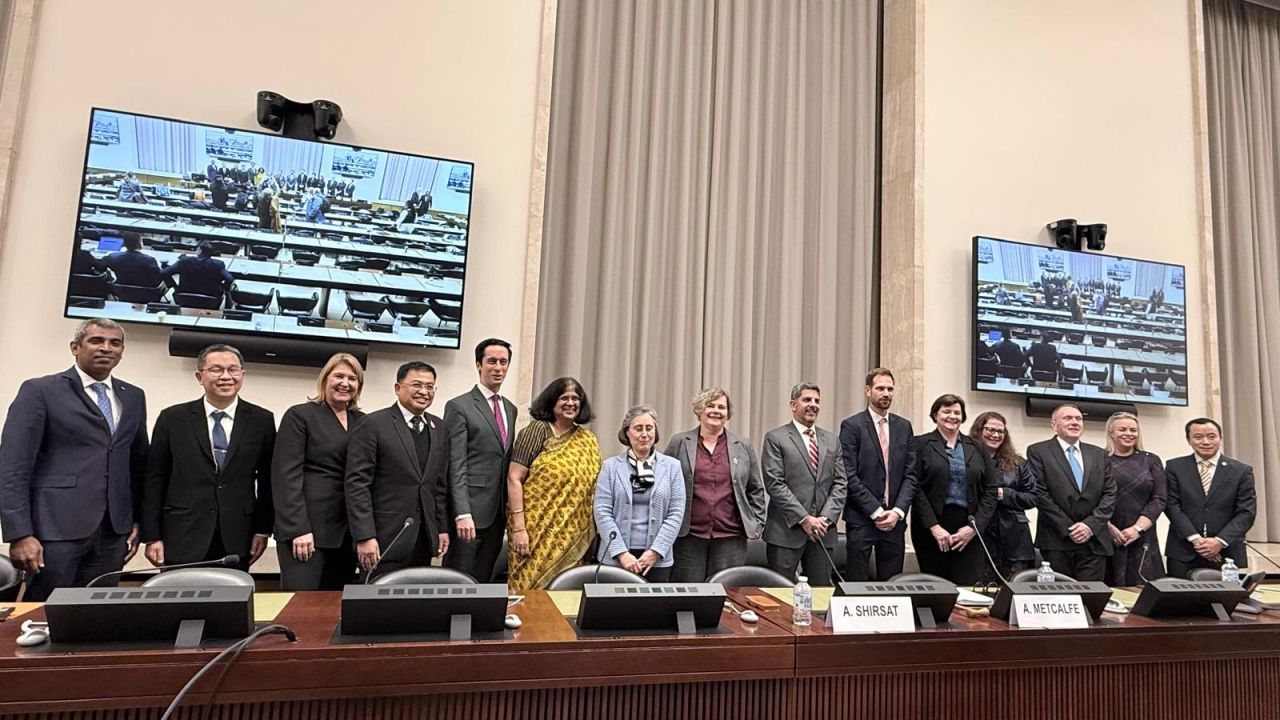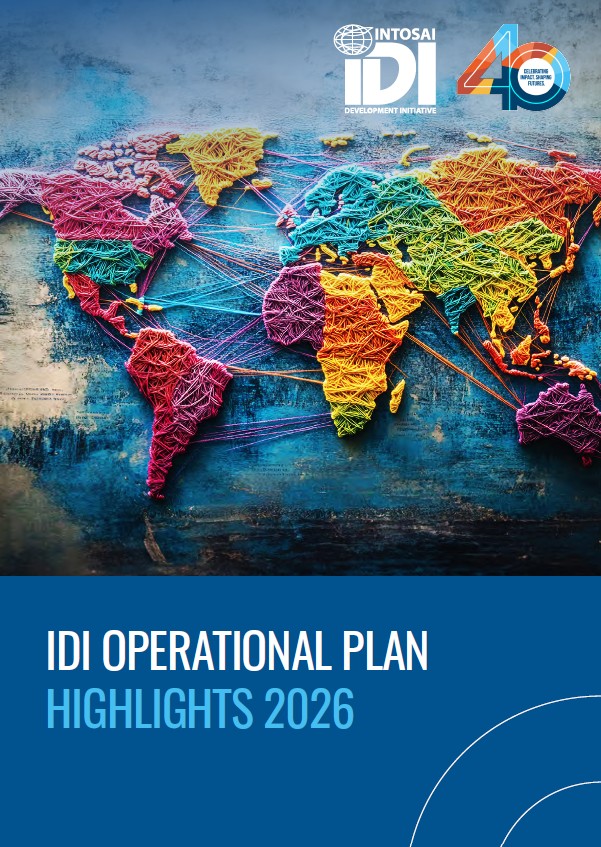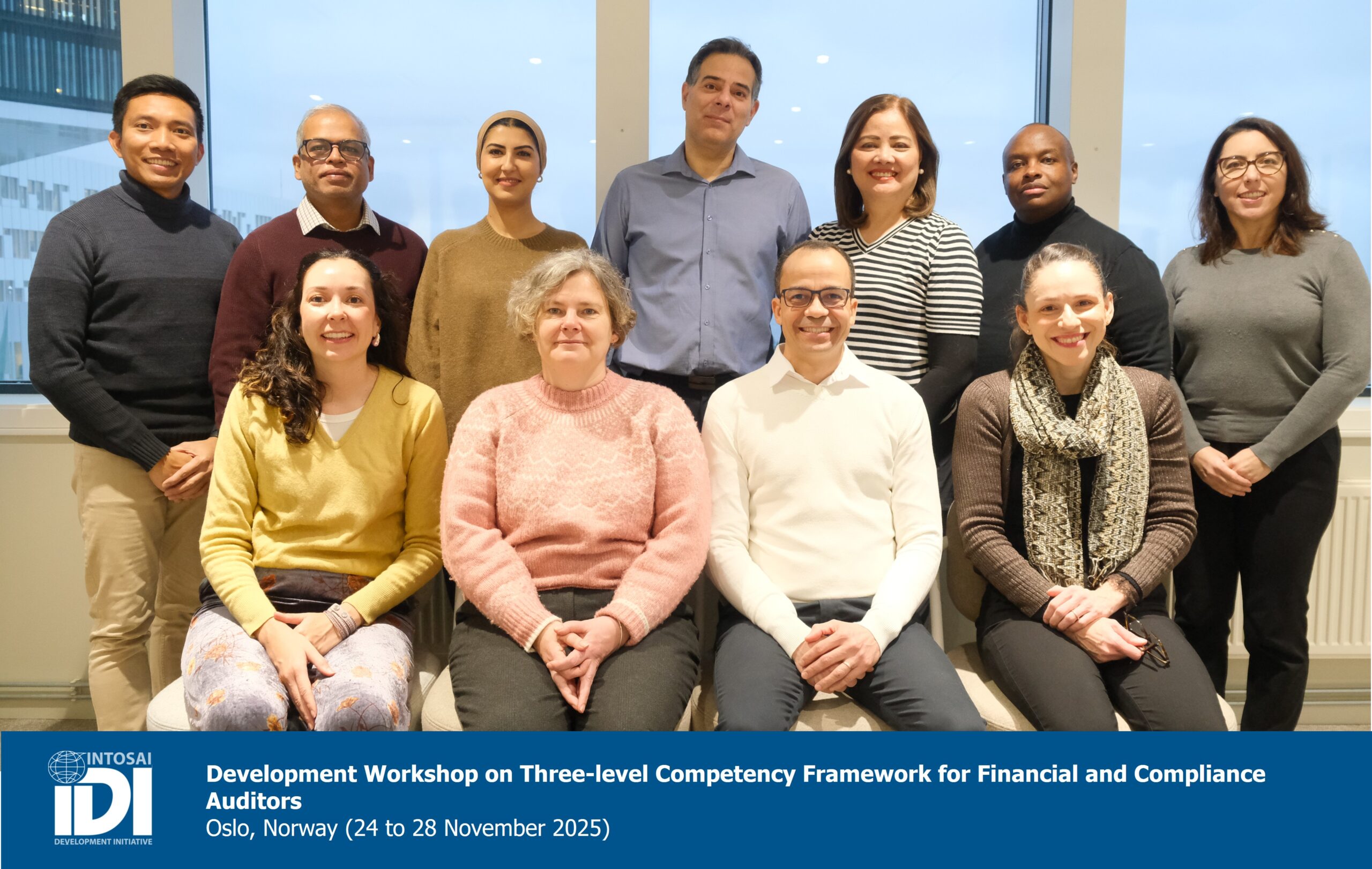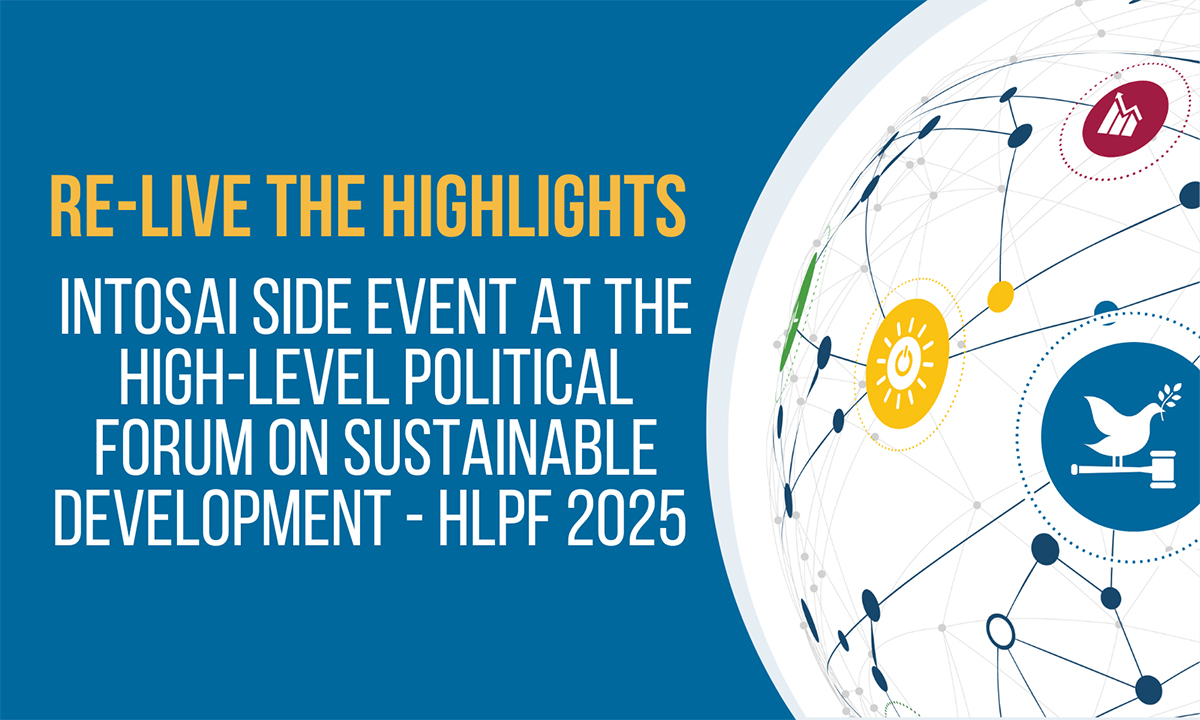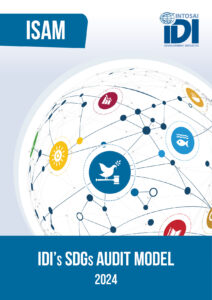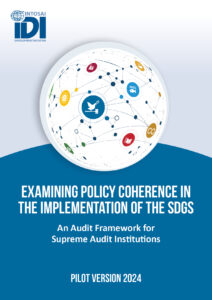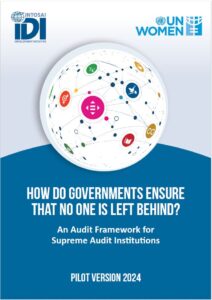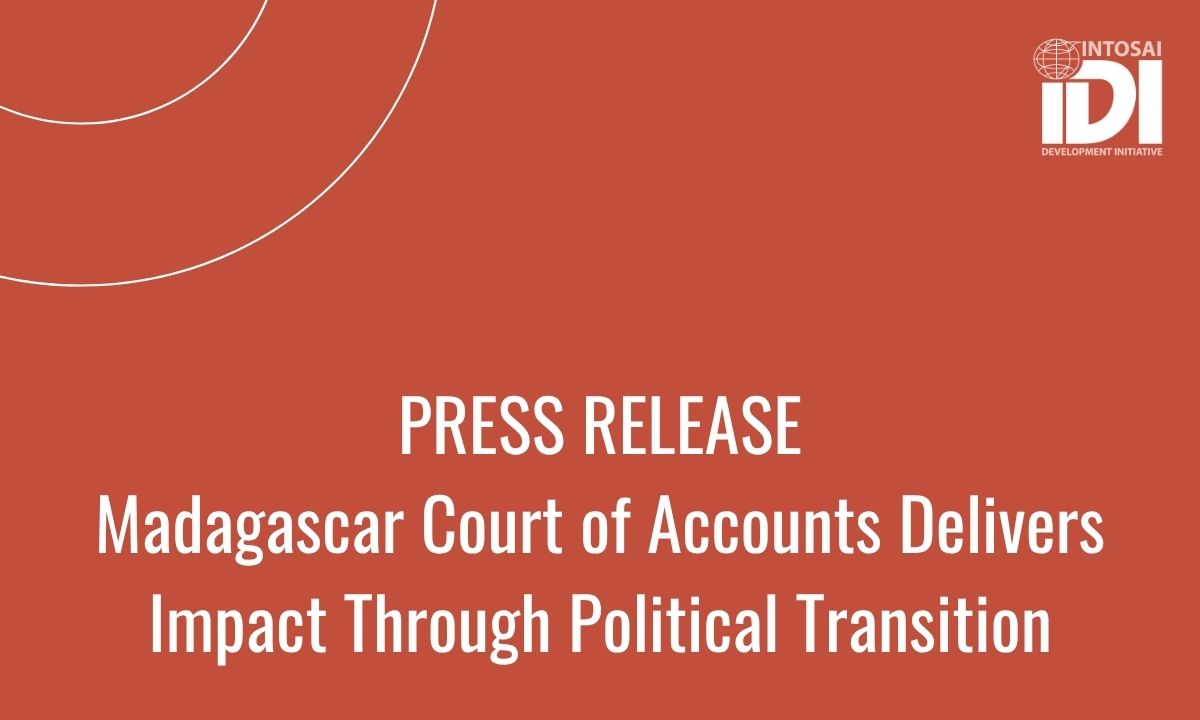On 21 July 2025, the Permanent Mission of the Kingdom of Bhutan to the United Nations hosted the side event, co-organised by the INTOSAI General Secretariat, the INTOSAI Chair, the INTOSAI Development Initiative (IDI), the INTOSAI Knowledge Sharing Committee (KSC), SAI Bhutan, the Permanent Mission, and the UN Entity for Gender Equality and the Empowerment of Women (UN Women), in collaboration with the UN Department of Economic and Social Affairs (UN DESA).
With both in-person and online audiences, the speakers and panellists highlighted the vital role of SAIs in strengthening public sector accountability and contributing to sustainable development through high-quality, impactful audits. IDI and the INTOSAI KSC leveraged the occasion of the HLPF side event to launch the SAI SDG Auditor Initiative, aiming to deliver three outcomes: developing SAI auditor competence, contributing to SDG implementation, and communicating to enhance SAI visibility.
Opening Remarks
Dasho Tashi, Auditor General of SAI Bhutan, welcomed participants and expressed honour in Bhutan’s role as host of the event. He highlighted how IDI’s vision—Independent, credible and sustainable SAIs for better societies and improved lives—is closely aligned with the principle of “leave no one behind” (LNOB). He noted that since 2016, more than 100 SAIs have audited preparedness and implementation of the SDGs. Finally, he called on SAIs to not only assess government commitments but also help them in fulfilling the Goals through constructive feedback and recommendations, reinforcing the role of audit institutions in achieving better societies and improved lives.
Mr. Vital do Rêgo, Minister President of SAI Brazil (TCU) and INTOSAI Chair, highlighted the SAI’s commitment to gender equality, mentioning the development of its Gender Equality Audit Strategy, participation in IDI’s Equal Future Audits (EFA) initiative, and pursuit of the UNDP Gender Equality Seal for Public Institutions. He noted that women now occupy 37% of leadership positions in TCU, while representing 25% of its overall workforce. He emphasised TCU’s support for the cooperative audit on gender-based violence conducted within the Organisation of SAIs of the Community of Portuguese-Speaking Countries (OISC-CPLP). He described collaboration with the Oxford Poverty and Human Development Initiative (OPHI) to assess the impact of public spending on poverty reduction, considering multiple dimensions of poverty. He also showcased TCU’s use of technology and artificial intelligence—through tools such as ChatTCU and LabContas—to enhance audit efficiency. Concluding his remarks, Mr. do Rêgo stressed the importance of strong, skilled, and independent SAIs, and the value of collaboration, in advancing the SDGs.
Mr. Ronald Roedl, Director General of SAI Austria and representative of the INTOSAI General Secretariat, acknowledged that global progress on the SDGs is off track and emphasised the critical role of SAIs in strengthening domestic accountability, providing valuable information about the national progress towards the Goals, and contributing to public trust. He mentioned the importance of the launch of the SAI SDG Auditor Initiative during the event. He highlighted INTOSAI’s efforts to support SAIs in auditing SDGs and to foster global dialogue between the INTOSAI community and key stakeholders, including the INTOSAI–UN Symposium, the INTOSAI side events at the HLPF, and other conferences. He stressed that the capacities and competencies developed by SAIs will remain relevant beyond 2030 and called for continued strategic dialogue on competency development.
Recording of the opening remarks
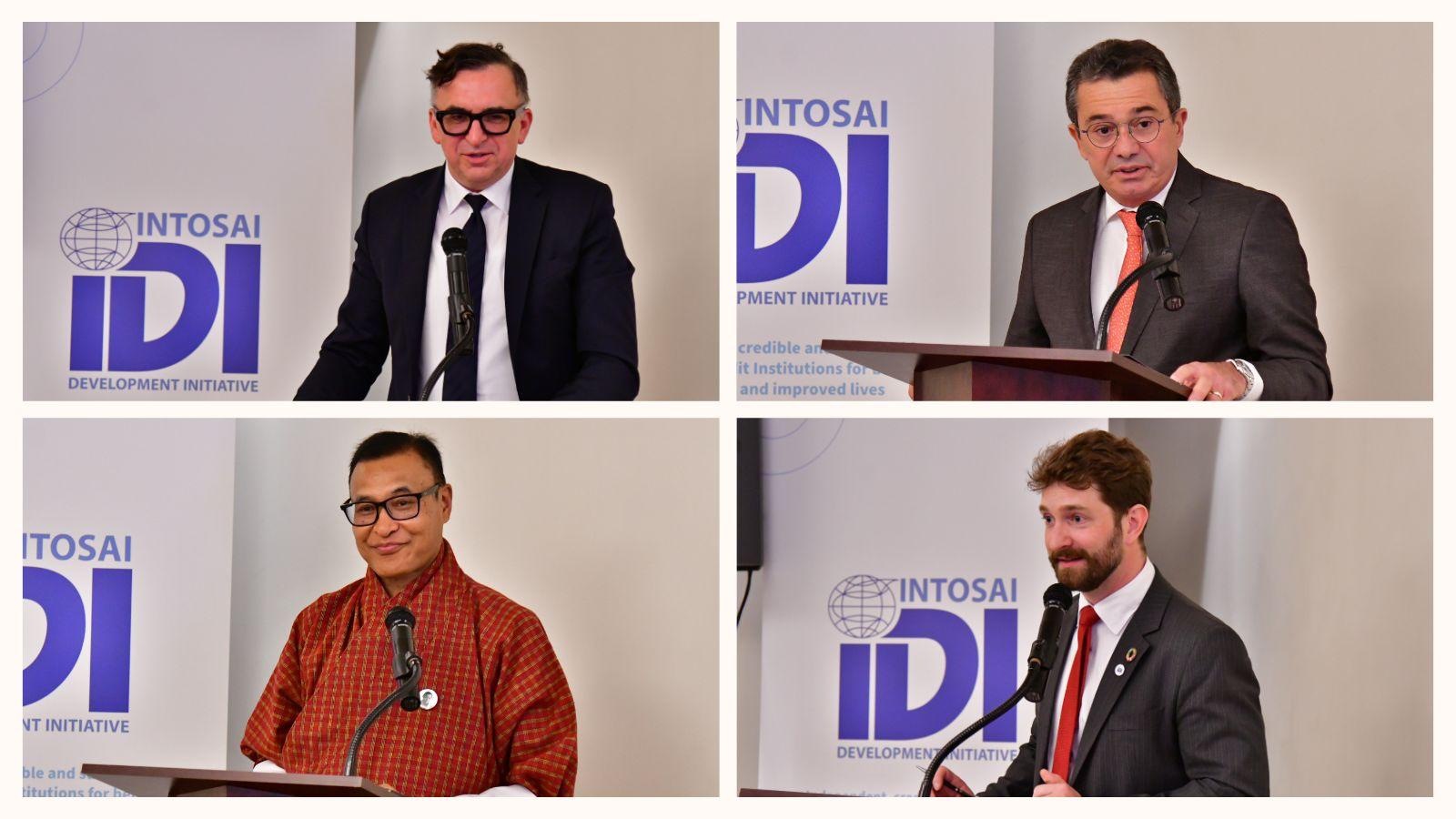
Fireside conversation: Growing SAI SDG Auditors for enhancing audit value for the implementation of 2030 Agenda
In the Fireside Conversation, Ms. Archana Shirsat, Deputy Director General of IDI, and Ms. Shefali Andaleeb, Director General of International Relations at SAI India and representative of the INTOSAI KSC, discussed SAI auditor competency development to audit the SDGs.
Ms. Shirsat reflected on the journey since 2016 to support SAIs in auditing SDG preparedness and implementation, highlighting the importance of adopting a whole-of-government approach, adhering to the International Standards of SAIs (ISSAIs), and establishing partnerships with key stakeholders such as KSC, UN DESA, and WHO. She launched the SAI SDG Auditor Initiative, with three outcomes: Competence of the auditors, Contribution to SDG implementation, and Communication to enhance the SAI visibility. While earlier efforts focused on the audits, this initiative prioritises the auditors, to be supported by a competency framework, and key resources such as IDI’s SDGs Audit Model (ISAM 2024), and frameworks for auditing Policy Coherence and LNOB. She stressed the need for multistakeholder engagement, facilitating audit impact, and for auditors to embrace complexity and think with a future-oriented mindset, closing with a Māori saying: “We have come too far not to go further, we have done too much not to do more.”
Ms. Shefali Andaleeb reaffirmed KSC’s commitment to the SDGs and partnership in the initiative, highlighting the role of the working groups in providing guidance and promoting knowledge sharing in areas such as environmental audit, anti-corruption, IT audit, big data, and science and technology. She stressed the importance of advocacy and awareness, noting that SAIs should not only carry out meaningful audits but also communicate their value to stakeholders and the public. She also underlined the need for resource persons as in-kind contributions from SAIs. Concluding, she expressed optimism about the IDI–KSC partnership and the potential of the SAI SDG Auditor Initiative to empower auditors and enhance SAI audit impact.
Recording of the fireside conversation
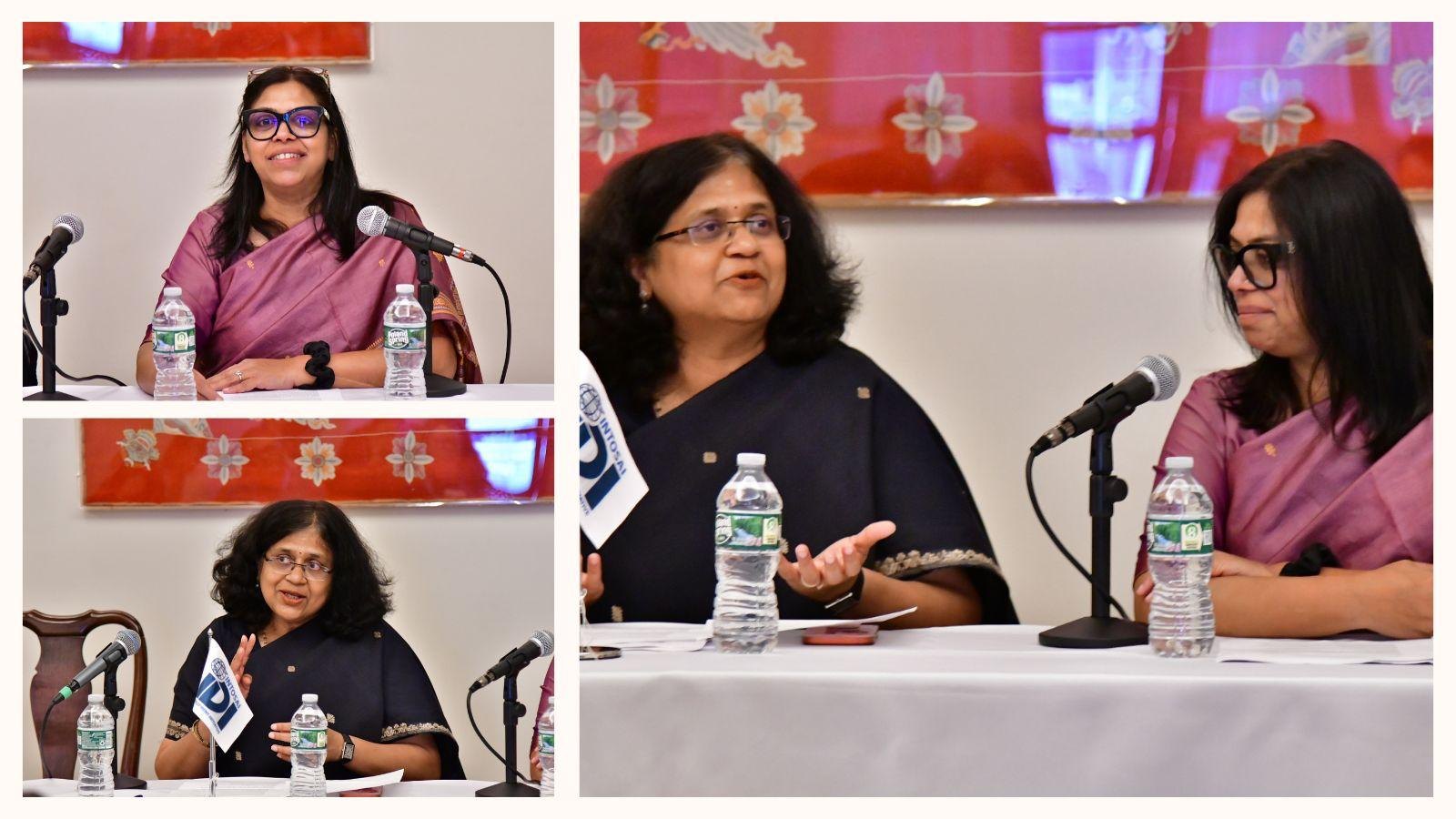
Panel discussion: SAI Competencies, Capacities and Contribution to the 2030 Agenda
Ms. Yvonne James, Head of SAI Saint Lucia, shared the unique challenges faced by Small Island Developing States (SIDS), including limited resources and technical capacity. She explained that most auditors in Saint Lucia are trained in financial auditing, which posed difficulties in conducting performance audits on SDGs. With support from IDI and the World Health Organization (WHO), the SAI overcame these challenges and produced impactful audits that engaged stakeholders and shifted perceptions of SAIs. She emphasised the importance of partnership with stakeholders with expertise in the subject matter, and the value of embedding community voices in audit reports, facilitating audit impact.
Dasho Tashi highlighted the impacts of the Audit of Strong & Resilient National Public Health Systems (3d audit) in Bhutan, conducted during the second wave of COVID-19 amid challenges such as lockdowns. He explained how the audit led to the inclusion of biological hazards in the national disaster risk management system, which had previously focused solely on natural disasters (landslides, earthquakes, floods, etc.). The audit also prompted the integration of health policies across provinces and ministries in different sectors of the public administration, improved the interoperability of health information systems, and established protocols for the management of deceased bodies. These reforms have significantly strengthened Bhutan’s preparedness for future pandemics and disasters.
Mr. Sohel Saikat from the World Health Organization (WHO) reflected on the global collapse of health systems during COVID-19 and stressed the importance of building public health resilience worldwide. He highlighted the deep interconnectedness of health with other sectors of the economy and of public administration, including transportation, trade, tourism, and climate, while also noting the low priority often given to ministries of health in many countries. He explained that the WHO–IDI partnership during the 3d audits provided structured competency development for auditors and also helped position SAIs within national political structures. Mr. Saikat also underscored the vital role of women in health care and the need to empower female health workers in policymaking and decision-making processes to ensure stronger and more effective public health systems.
Mr. Monjurul Kabir from UN Women discussed the LNOB audit framework, developed in partnership with IDI, highlighting the challenges of addressing intersectional discrimination and ensuring inclusive access to finance—challenges that will persist beyond 2030. He shared examples of audits conducted by SAIs Georgia and Rwanda on gender and disability, underscoring the need for a whole-of-government approach in auditing sustainability. He also noted that ministries focused on gender and inclusion often lack political influence—similar to what had been mentioned regarding ministries of health—yet their work remains essential for achieving national and regional goals.
Ms. Adriana Alberti from UN DESA emphasised that, in implementing the SDGs, mindsets are as important as technical skills and know-how for aligning public servants’ behaviours with policy goals and unlocking institutional effectiveness. She introduced the mindsets and competency framework developed by UN DESA, including agility, system thinking, collaboration, innovation, foresight, evidence-based thinking, and empathy. She also described UN DESA’s efforts to embed these competencies through training and curriculum development.
In her closing remarks, Archana Shirsat thanked all speakers and participants for their insights and contributions. She reiterated the importance of integration, intersectionality, and changing hearts and minds. She expressed hope that the SAI SDG Auditor Initiative will achieve the same level of success as previous efforts and encouraged continued collaboration to strengthen the role of SAIs in sustainable development.
Recording of the panel discussion

The event was moderated by Mr. Adriano Juras, manager at the IDI.
Learn more about the SAI SDG Auditor Initiative
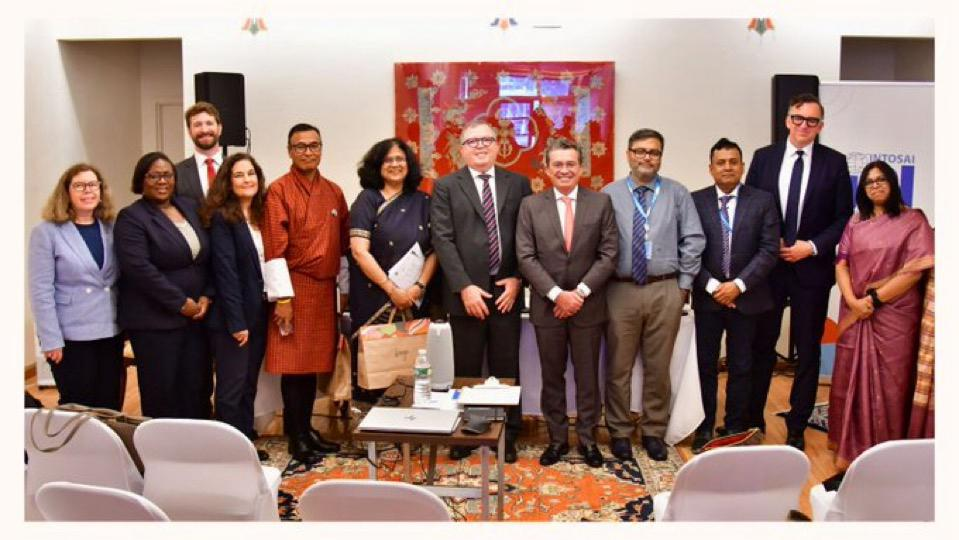
Photos Attribution
Source: INTOSAI Journal of Government Auditing
Initiative
Topics
Recent News
